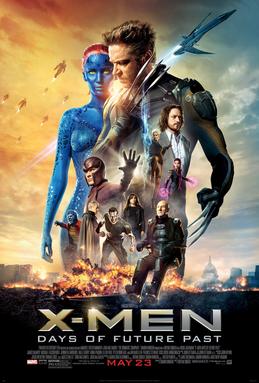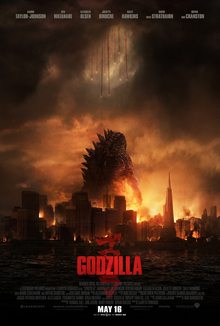The Hobbit
Directed by Peter Jackson
Written by Fran Walsh, Philippa Boyens, Peter Jackson, and Guillermo del Toro, based on the novel by J.R.R. Tolkien
Cast: Martin Freeman, Ian McKellen, Richard Armitage, Ken Stott, William Kircher, James Nesbitt, Stephen Hunter, Mark Hadlow, Graham McTavish, Dean O’Gorman, Peter Hambleton, Aidan Turner, Jed Brophy, John Callen, Adam Brown, Cate Blanchett, Hugo Weaving, Christopher Lee, Bret McKenzie, Sylvester McCoy, Lee Pace, Orlando Bloom, Evangeline Lilly, Luke Evans, Stephen Fry, John Bell, Craig Hall, Benedict Cumberbatch, Billy Connolly, Thomas Robins, Antony Sher, Manu Bennett, Andy Serkis, Barry Humphries, Kiran Shah, Elijah Wood, Ian Holm, Dan Hennah
Soundtrack: Howard Shore
Oh, my head.
Yesterday, I made the decision, perhaps foolish, to see all three Hobbit films in one sitting (at my old favorite, the Alamo Drafthouse Theater in Yonkers, NY).
I had not seen the previous two Hobbit films at all, frankly, because I wasn’t really interested in seeing another three movies about Hobbits and Dwarves and whatnot in Middle Earth, but, ultimately, the opportunity to see a complete trilogy, with fresh eyes, in a theater with plenty of food and drink at hand, was too enticing to pass up, even if I did have to take time off from work to do so.
Was it worth it? In the end, I suppose so, if for nothing else than it gives me something to talk about. It’s not often that I get to write about a movie (or series of movies) before most people get to see it, so here goes.
Now, when I first heard that J.R.R. Tolkien’s [roughly] 300-page novel, The Hobbit, was going to be adapted into not just one film, but a whole trilogy of films, I said to myself, “It’s going to be the Star Wars Prequels all over again,” in that a later-produced trilogy that takes place before the events of the original trilogy could not possibly live up to the original, and might even leave a black mark on the whole franchise.
Now, is Peter Jackson’s The Hobbit anywhere near as bad as Star Wars: Episodes I-III?
No, of course not.
Unlike the Prequels, which are almost completely irredeemable as films, there are many enjoyable aspects of The Hobbit movies, but there are a few themes, somewhat reminiscent of Episodes I-III, that run throughout these films and make it difficult for me to recommend them as presently constituted.
What am I talking about?
1. The Characters (aka “Who’s the protagonist?)
This is, in fact, a very minor complaint, and I don’t actually mind movies straying away from traditional storytelling and featuring multiple leads, but for what is essentially a nearly eight-hour long motion picture called The Hobbit, there are an awful lot of long stretches where the title character isn’t around, or, if he is, the story is not from his perspective. I get that Peter Jackson essentially raided the Tolkien library for any other unadapted source material related to Middle Earth to pad out the running time (which is the proper way to do so; add more STORY…we’ll come back to padding later), but, at times, it’s just a little tough to reconcile how much of The Hobbit is told without him, and how often it feels like the Dwarf or Wizard show.
2. Tone (aka “You’re making a movie for children, right?”)
One issue with the Star Wars Prequels, and it’s echoed almost perfectly by The Hobbit, is that the movies get darker and darker as the trilogy progresses, as if the filmmakers think they need to compensate for something. Now with the Prequels I think this was entirely intentional, as a response to the negative audience reaction to Jar Jar Binks and other such attempts at “comedy.” With The Hobbit one could argue that it’s part of the natural progression of the story, and at the end of the day I don’t specifically have a problem with Peter Jackson wanting to make an adaption for mature audiences, but at the same time he’s making an adaptation of a children’s novel, complete with lots of kid-friendly moments (like dwarves doing annoying dwarf things). Do we really need to also see decapitations and people burning and dead children? Again, who are these movies really for?
Which leads me to my next point.
3. Excess (aka “I may have gone too far in a few places.”)
Peter Jackson is a huge Tolkien fan.
He’s also arguably the most excessive director working today, and has been going all the way back to his schlock horror days with movies such as Dead Alive (aka Braindead) and Meet the Feebles. Now, excess can be good when properly channeled (think Quentin Tarantino
), but a three-hour long King Kong movie that nobody wanted or needed, and fails to justify its own existence (unlike certain
other
ape-themed movies which are fantastic), is not what I had in mind.
The core problem with these movies isn’t just how long they are, it’s WHY they’re as long as they are; and while there are other Tolkien works folded into the story, the excessive running times are ultimately due to excessive action scenes, some of which look fine, and others of which look like cutscenes from videogames (and I don’t mean no PS4; I’m talking XBOX 360 at best). In fact, a great deal of tension is lost from our heroes actually physically behaving like videogame characters; with such speed, strength, and agility that they basically become unbelievable within their own fantasy universe.
You see, Peter Jackson and George Lucas both failed to realize that even in this amazing age of digital technology, just because you can dream something, and just because you can create it in a computer, does not outright mean you should commit it to film. And it also seems like both of them are in favor of pushing technology in the wrong direction: Lucas, to further his own laziness, and Jackson, well, I guess to make 48fps telenovelas about Middle Earth.
Anyway, I could more easily accept a Hobbit trilogy if it was three 100-120 minute films, or like a 6-8 part TV miniseries; but three two-and-a-half to three-hour long films is just insane, and I’m not just saying that because I saw all three in a row. Remember, this whole thing is essentially based on one 300-page children’s novel. The Rankin/Bass animated version from the late-1970s clocks in at a crisp 77 minutes, and while it does leave some story elements out, does Peter Jackson’s version really need to be over six times as long? I argue no.
Now I’ve spent nearly a thousand words hammering what I don’t like, and why I don’t recommend this trilogy as it stands, but I don’t want to end on a totally down note, because I don’t actually hate these movies. In fact, you could say I really want to like them, but overwhelming factors prevent me from doing so.
If you’ve already seen Journey and Smaug, going #OneLastTime to see Five Armies can’t hurt, but if you haven’t seen any of them before, I say don’t bother with them.
I hope there will come a day, after Five Armies is released on home format, that someone in the fan-edit community will take all the footage available and compile together a reasonable-length version of Peter Jackson’s The Hobbit, because as I said before, there are plenty of gems to find: good performances; emotional moments; all the wonders of a fantasy world.
Right now, it’s just not worth 8 hours (474 minutes, to be precise) of your time.
But we can always dream.
Overall Rating: ★★½ (out of five)



